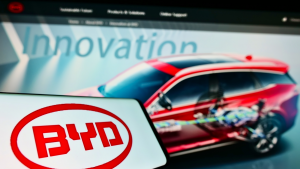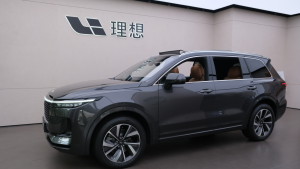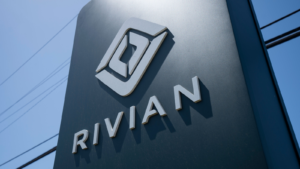Since then, a number of capable EV companies have entered the space, and several of them have done well for themselves. Furthermore, elevated interest rates coupled with ongoing inflationary pressures have created a prolonged EV slump, a downturn that has sorely affected Tesla and its sales figures. Moreover, as China supercharges its EV market, more competitors have emerged, putting Tesla, again, on the defensive.
Below are three EV stocks that probably wouldn’t be here if it were not for Tesla, yet currently have better prospects.
BYD (BYDDY)

The Chinese EV champion BYD (OTCMKTS:BYDDY) continues to make waves in both domestic and international markets. BYD has developed quite an efficient, vertically integrated business that not only manufactures the cars themselves but also develops the batteries that go into them and enables a supply chain of various EV material inputs. There was a lot of reporting at the beginning of 2024 that the Chinese EV market might not hold up, and sequential growth from December had slowed. However, Chinese EVs ended the first quarter better than anyone expected. BYD, in particular, reported sales increasing 46% year-on-year (YOY) to 301,631 passenger vehicles. A total of 300,114 of them included hybrid and pure battery EVs.
Second-quarter EV sales jumped 21% YOY to 426,039 vehicles, while Tesla’s second-quarter deliveries fell 4.8% to 443,956 vehicles. This puts BYD back on track to the be the world’s largest EV producer again in 2024.
Despite all the success, BYD also trades at a cheaper valuation multiple to Tesla: 21x forward earnings.
Li Auto (LI)

Li Auto (NASDAQ:LI) is another stock that appears to be on its way to eclipsing Tesla, at least in Li Auto’s home market, China. The EV maker specializes in designing and manufacturing premium SUVs.
According to its website, “[Li Auto] started volume production in November 2019. Its current model lineup includes Li MEGA, a high-tech flagship family MPV, Li L9, a six-seat flagship family SUV, Li L8, a six-seat premium family SUV, Li L7, a five-seat flagship family SUV and Li L6, a five-seat premium family SUV.”
Due to intense price wars and production ramp-up, Li Auto experienced double-digit growth in the first quarter. Li Auto delivered 80,400 vehicles in the first quarter, which was above the upper end of its guidance range. That represented a YOY increase of 52.9%. Li Auto reported 47,774 vehicle deliveries for the month of June, representing an uptick of 46.7% YOY. For the full second quarter, Li Auto delivered 108,581 vehicles, which represented an increase of 25.5% YOY.
Li Auto remains Tesla’s closest rival in the China market, and the Chinese EV maker even surpassed Tesla in sales at a point late last year.
Rivian Automotive (RIVN)

Rivian Automotive (NASDAQ:RIVN) is a luxury EV company that got its start in 2009. Back then, Rivian, founded by MIT graduate Robert “RJ” Scaringe, focused on sports cars. Not until 2015, after Tesla’s rise to fame, would the company shift its strategic focus to electric trucks and SUVs that catered to outdoor enthusiasts and adventure seekers. In that time, Rivian also acquired Mitsubishi’s (OTCMKTS:MSBHF) automotive plant in Normal, Illinois in 2017 so that the EV maker could boost production.
Fast forward to today, Rivian has also struggled with the ongoing EV slump, but because the company has focused so much on the luxury segment of the market, the impact of the slump overall has been mixed. Rivian delivered 13,790 vehicles in Q2, 9.1% more from the 12,640 vehicles the EV maker delivered in the second quarter of 2023. The EV maker had to pause production in its Normal, Illinois plant, which explains the slowdown, but management expects things to pick up and to reach its 57,000-vehicle production target for the year.
On the date of publication, Tyrik Torres did not hold (either directly or indirectly) any positions in the securities mentioned in this article. The opinions expressed in this article are those of the writer, subject to the InvestorPlace.com Publishing Guidelines.
On the date of publication, the responsible editor did not have (either directly or indirectly) any positions in the securities mentioned in this article.
Tyrik Torres has been studying and participating in financial markets since he was in college, and he has particular passion for helping people understand complex systems. His areas of expertise are semiconductor and enterprise software equities. He has work experience in both investing (public and private markets) and investment banking.
